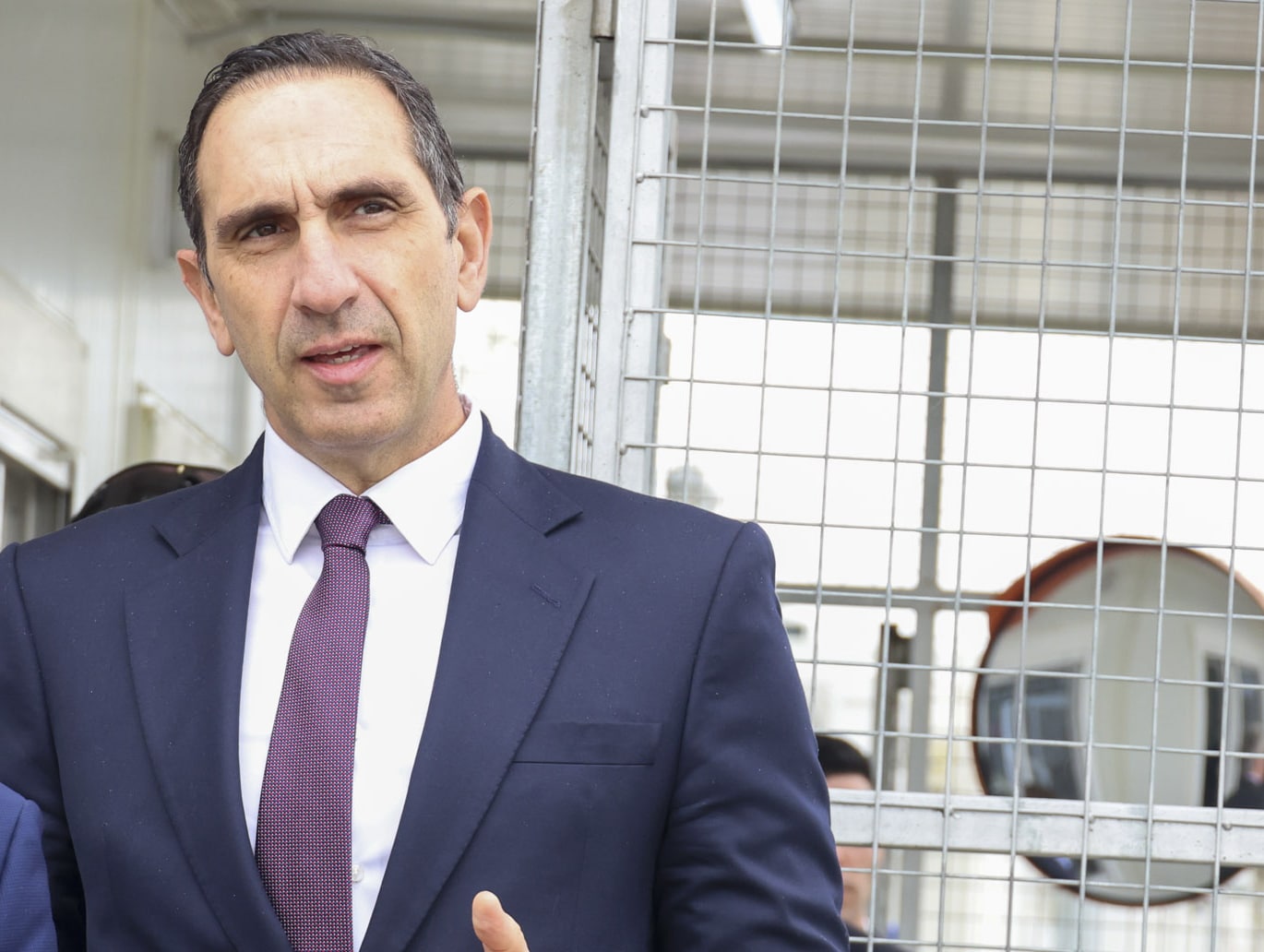The redesign of the European Union’s migration system is a “step in the right direction”, Interior Minister Constantinos Ioannou said on Thursday.
In a post on X, he said that there is still progress to be made to satisfy him and his government, saying “our request remains that the relocation of asylum seekers is mandatory and not voluntary.”
The redesign consists of 10 separate pieces of legislation, all of which were passed by the European parliament on Wednesday night. It provides for a stricter and more unified approach across the bloc to the processing and settling of asylum seekers.
Included in the legislation are provisions for “solidarity” between member states, which includes the voluntary taking on of asylum seekers by states which have the ability to do so, as well as providing financial contributions and operational and technical support.
There are also provisions to help EU countries manage surges in migrant flows, as well as screening of third country nationals upon their entry to the EU, with identity checks, biometric data collection and other checks. This process could take up to seven days.
In addition, regulations regarding the Eurodac database will be altered, allowing for the fingerprints and photographs of those entering the EU illegally to be stored indefinitely.
There are also provisions for faster processing of asylum claims and more watertight rules on asylum claims, as well as uniform reception standards for asylum seekers in terms of housing, schooling, and healthcare.
Additionally, member states have agreed to take in people who have already had their asylum claims ratified in other member states on a “voluntary” basis.
In a separate statement on Thursday morning, the interior ministry said the pact “gives member states the tools to implement more effective migration management policies, and, above all, is a practical application of solidarity as a fundamental principle of the EU.”
They said it “establishes a common legislative framework for the 27 member states, and establishes procedures for, among other things, the reception and resettlement of migrants, faster processing of asylum applications, stricter legal procedures and penalties for migrant smugglers, and ways to manage crises.”
They added that the Cypriot government has implemented a “series of measures” over the past year which resulted in “a reduction in migrant arrivals and an increase in migrant returns”.
“The time for examining asylum applications has been reduced to a maximum of three months, while our efforts are now focused on shortening the time for issuing a decision to within 30 days.”
The ministry’s statement concurred with Ioannou’s earlier words, saying that while the fact that migrant relocations are voluntary and not mandatory for member states is “less than ideal”, the pact “is still an extremely important step, especially for the countries which are on the front line and are under disproportionate pressure.”
Ioannou is set to continue his tour of the continent on Thursday, during which he is speaking to various EU counterparts about the issue of migration and about Cyprus’ initiative to have the EU declare parts of Syria safe to return migrants.
He visited Prague to meet with the Czech Republic’s Interior Minister Vit Rakusan. There, it was decided that Cyprus and the Czech Republic would organise a joint factfinding mission to Syria, with the aim of designating parts of the country as safe.
On Wednesday, Ioannou had met with his Danish counterpart Kaare Dybvad Bek. Bek had said his country recognises the enormous pressure on Cyprus due to massive flows of migrants of Syrian origin.
In addition, he said he endorses Cyprus’ position on Syria, saying “the time has come to examine the real facts in Syria to allow states to carry out returns under specific and strict conditions.”
Ioannou is due to meet with Greek Migration Minister Dimitris Kairidis in Athens on Friday.
While not a scheduled stop on Ioannou’s European tour, the Austrian government had earlier also thrown its weight behind Cyprus’ plan to declare parts of Syria safe.
Speaking to the Cyprus Mail, a spokesperson for the Austrian interior ministry said Minister Gerhard Karner had told the European Union’s justice and affairs council that “deportations to safe areas in Syria should be possible again in the medium term.”
Meanwhile, President Nikos Christodoulides held a telephone conversation with Lebanese Prime Minister Najib Mikati on Thursday morning, informing him about the role Lebanon can have in the joint effort to stem the flows of irregular migration.







Click here to change your cookie preferences